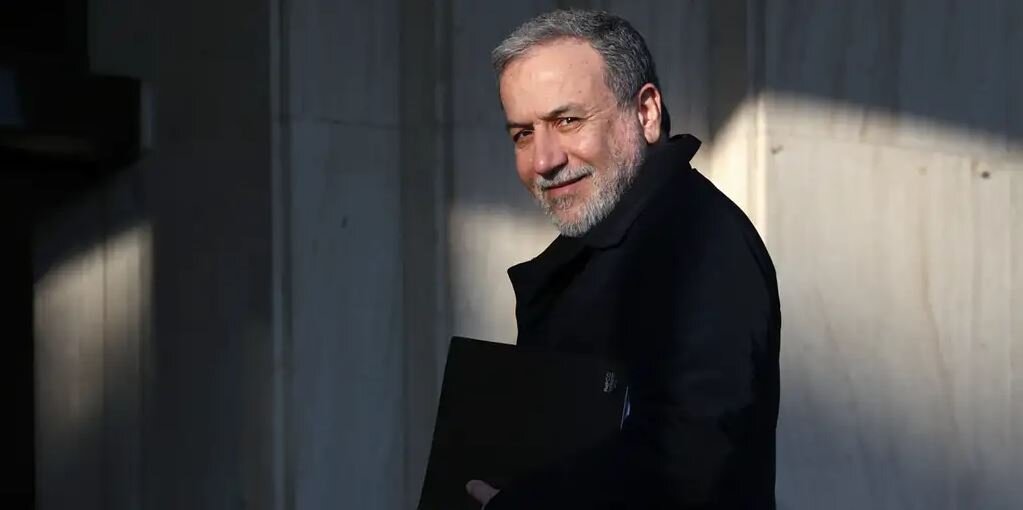TEHRAN – A spokesman for Iran’s foreign ministry announced that Foreign Minister Abbas Aragut will travel to China on Tuesday.
Esmaeil Baghaei announced the news at a press conference Monday.
High-level debate between Iran and China is expected to include updates on ongoing negotiations with Washington and follow-up on a bilateral agreement with Beijing.
A foreign ministry spokesman highlighted that a trip to China was planned in advance by answering questions from a Tehran Times reporter about the nature of the trip. “Of course, during this visit, we will discuss the situation of negotiations with Chinese officials and explain the latest developments,” Baghhai said. He said the visit was intended to accelerate the implementation of previously signed agreements, which are within the broader framework of Iran-China’s growth strategic partnership.
Travel comes at a pivotal moment in the Iranian diplomatic calendar as indirect negotiations between Tehran and Washington enter a delicate phase. Baghaei confirmed that both expert-level discussions and third round high-level consultations between Foreign Minister Araguchi and US Special Mission Steve Witkov will be held in Muscat, Oman. These meetings aim to resolve remaining differences regarding the future of Iran’s nuclear program and the lifting of US sanctions.
Also, ahead of discussions for the second round in Rome on April 20th, Aragut visited Moscow where he held a joint press conference with Russian Foreign Minister Sergei Lavrov. During the briefing, Araguchi said that dealings with the US are possible. Washington said he would refrain from making “unrealistic” or “irrational” requests.
“We only negotiate nuclear issues. There are no other topics on the table,” Araguchi said. “If the United States shows true intentions and avoids excessive or unrealistic conditions, I believe the agreement is within the scope.”
Lavrov repeated these statements, reiterating Russia’s preparations to facilitate the process that both parties deem useful. “We are ready to support, mediate and support negotiations, provided that our role is accepted by both Iran and the US,” he said. Lavrov emphasizes that future agreements are strictly limited to nuclear-related issues, calling this the “basic” principle of Moscow’s position.
According to Lavrov, Russian President Vladimir Putin was “very pleased” at his recent meeting with Araguchi, showing Russia’s active interest in the outcome of his current diplomatic push.
The indirect second round with Iran took place on Saturday at the Embassy of Oman in Rome. Consultations focused on clarifying expectations on each side, narrowing technical gaps regarding nuclear enrichment levels, sanctions relief and verification mechanisms.
The two delegations agreed to hold technical level negotiations at MUSCAT on April 23rd. There, a team of experts work on the framework for potential transactions. The third high-level meeting between Araghchi and Witkoff is scheduled for April 26th at Muscat, and will assess progress and determine whether the parties are close enough to advance to a formal agreement.
Current negotiations continue for many years of fluctuations in US policy towards Iran. During his first term, President Donald Trump unilaterally withdrew the US from the JCPOA in 2018 and reimposed serious sanctions as part of his “maximum pressure” campaign. After returning to the second-term White House in January, Trump showed a change in tone and expressed his willingness to negotiate a new deal.
On March 12, Trump reportedly sent a letter to Iranian leaders proposing new negotiations and warnings of military outcomes. Iran excludes direct consultations under coercion, but remains open to indirect debate as long as it respects the country’s sovereignty and focuses solely on nuclear issues.
As preparations for the next consultation continue, Iran’s diplomatic engagement with Chinese, Russian and regional stakeholders appears to be aimed at securing political support and strengthening negotiating positions. Whether these efforts will culminate in breakthroughs remains to be seen, but Tehran’s approach suggests that it opens the door to calculated efforts and diplomacy to balance pressures.

